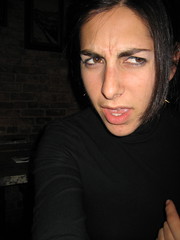After reading the first chapter of Michael Pollan's The Botany of Desire this summer, all I could talk about for days was Johnny Appleseed.
Pollan’s book is divided into four chapters, each mapping a singular plant's - perhaps conscious - evolution and adaptation to the desires of humans that has resulted in the plant's propagation. Pollan first takes on the apple (tagged as appealing to the human desire of "sweetness"), where he reveals the story behind a plant that was "eager to do business with humans and perhaps nowhere more so than in America." The figure that facilitated more transactions with the shiny-skinned fruit than any human in history, was Johnny Appleseed.
Although christened John Chapman by birth, Johnny Appleseed did exist. And he did traverse the wilderness of America planting trees, but they were trees yielding the most wretched, sour apples imaginable. It turns out all apples planted from seeds are wild strains, and the only way to cultivate one of the carefully engineered apple varieties we are familiar with today is through the grafting of existing trees. John Chapman's nearly inedible apples were welcomed on the frontier, however, because of their usefulness in making cider. Johnny Appleseed, myth and hero of kindergarten tall tales, was perhaps the number one unknowing proponent of alcoholism in early America.
Even more ironic/fucked up: During prohibition, apple-growers devised the slogan "an apple a day keeps the doctor away," to promote the supposed healthfulness of the source of their beloved alcohol. Thus, apples became one of the first products pushed our way through the wagon-wheel cogs of public relations.
And to think -- though I never liked you, I believed in you, apples.
I haven't yet cracked open Pollan's most recent work, The Omnivore's Dilemma, but he recently wrote an article for the New York Times Magazine about "nutritionism," which I finally got around to reading last night (it's nine pages long).
"Nutritionism" or the switch in public consciousness from eating food, to consuming nutrients has been upon the United States for the last twenty-or-so years, and Pollan is successful at unveiling the negative effects of this ideology on our health and diet. When emphasis is placed on incorporating singular nutrients instead of whole foods in our diets, we miss out on the positive effects of micronutrients that have not yet been isolated as well as the beneficial chemical reactions incurred when nutrients are ingested in concert, within the context of natural meals. Instead of eating balanced meals, we add nutritional supplements (whose benefits and drawbacks we don’t fully understand) to processed food products (whose essential nutrients have been removed in the first place). And Americans are never told to "eat less" of anything, lest we upset the balance of a prosperous food trade. As with many industries ruled by agendas of profit and policed by a government susceptible to bullying lobbyists, the food industry - and our health in turn - is plagued by its own regulations. As Pollan notes in one of my favorite lines of the piece:
"Of course it's also a lot easier to slap a health claim on a box of sugary cereal than on a potato or carrot, with the perverse result that the most healthful foods in the supermarket sit there quietly in the produce section, silent as stroke victims, while a few aisles over, the Cocoa Puffs and Lucky Charms are screaming about their newfound whole-grain goodness."
And sadly it still makes me feel better, when I breeze through two boxes of Cocoa Krispies a week, to find they're low in fat.
Pollan makes many other points about dietary over-generalization, the dangers of reductionist science and the effects of processed food on nutrition, that are worth absorbing and applying to your daily life (pending sufficient willpower). If you have the time, read the article. And eat a banana for God's sake.
Thursday, February 08, 2007
Subscribe to:
Post Comments (Atom)




1 comment:
Well written article.
Post a Comment